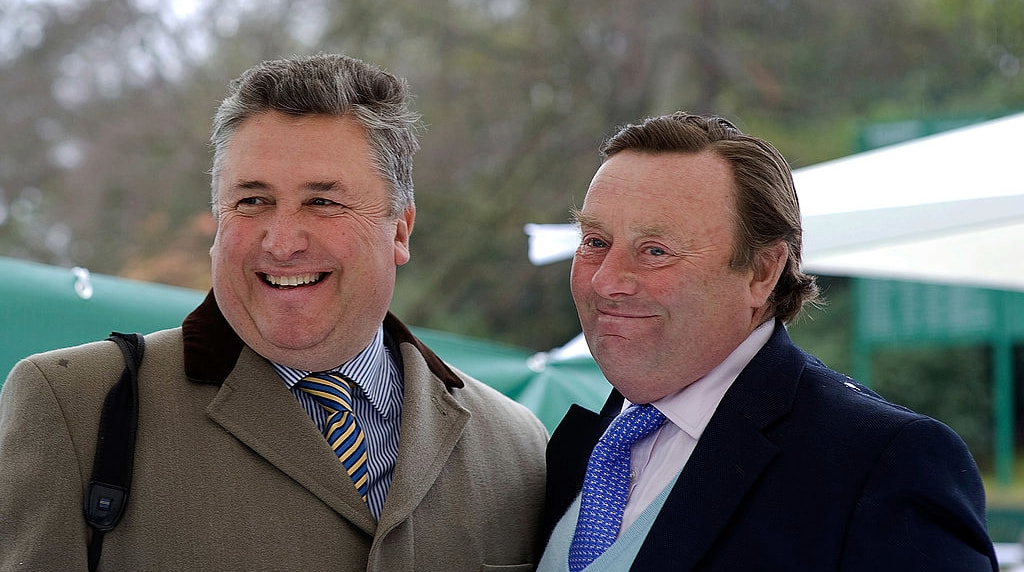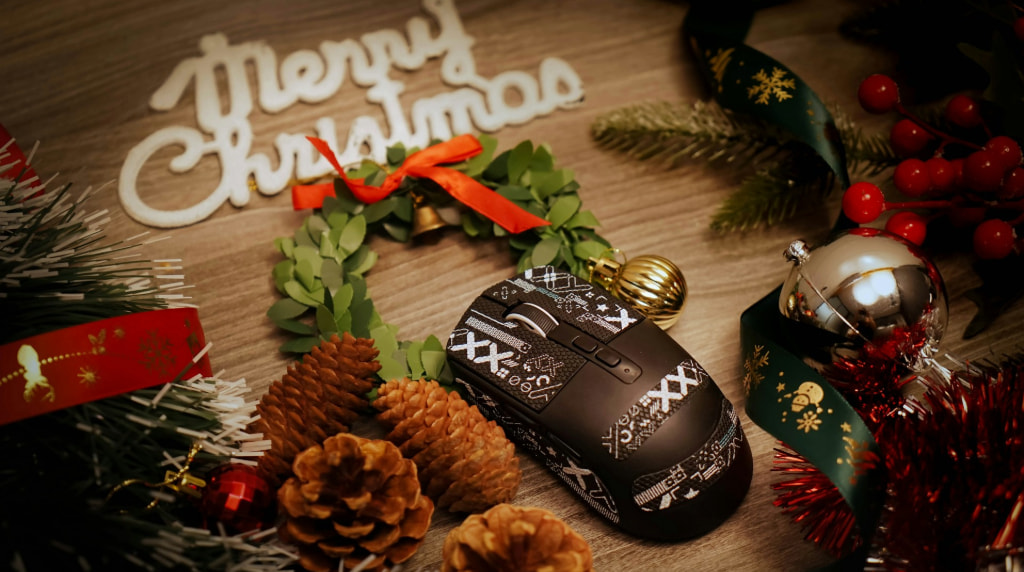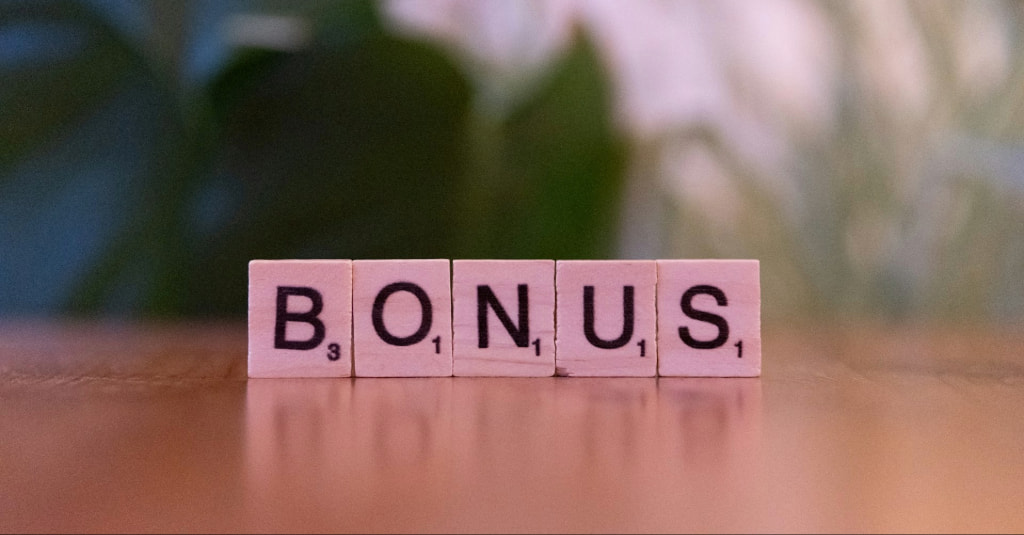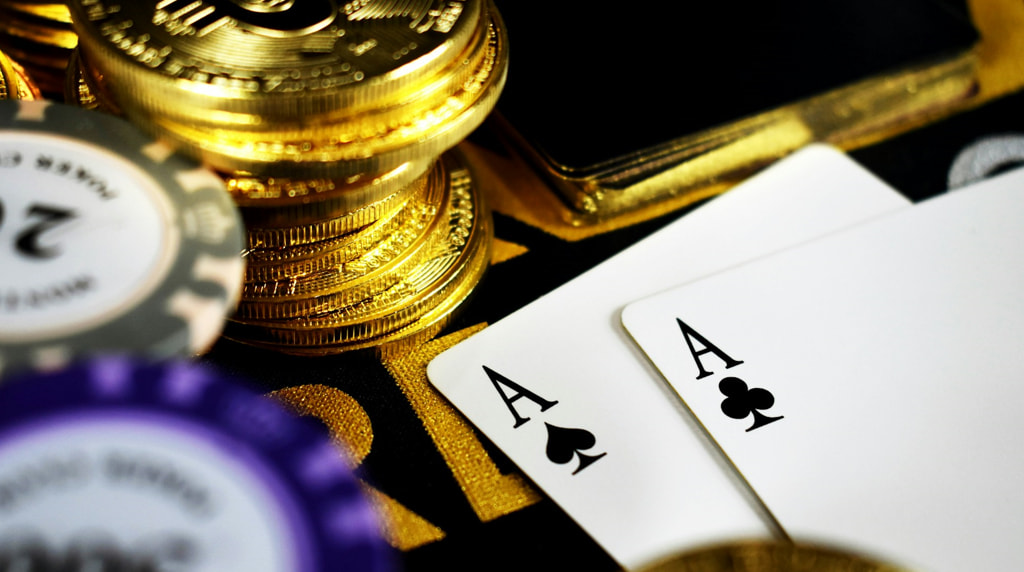The Top 5 Horse Racing Jump Trainers Over the Last 50 Years
National Hunt racing, traditionally a wintertime sport, and flat racing, more so a summertime spectacle, are distinctly different sports. Whereas top-drawer flat racers are packed off to stud at the end of their second season, jumps horses return year after year to become fan favourites.

Paul Nicholls (left) and Nicky Henderson have dominated British National Hunt horseracing. © Getty Images
The good and greats of the jumps racing game have long careers. The hugely popular Desert Orchid raced 71 times over eight seasons. Conversely, flat champion Shergar made just eight racecourse appearances in a racing career that lasted less than a year.
The legends of National Hunt racing have returned to win the same championship races more than once. In some cases, three, four and even five times. Many superstars of the jump racing game have maintained a partnership with the same jockey throughout their careers, and they have rarely changed stables.
Most of horse racing’s finest jump racing trainers have trained a Cheltenham Gold Cup winner, but unlike an Olympic gold medal success for athletes, it has not defined their career. Here we have listed five of jump racing’s greatest British racehorse trainers based on their longevity and influence on the sport, notable horses trained, and victories.
Paul Nicholls
Nicholls, who rode 119 winners as a jockey, has been crowned the Champion Jumps Trainer 14 times since the 2005/06 season. Rapidly closing in on 4,000 winners, except for the Covid-hit 2019/20 season, the son of a policeman has trained over 100 winners every season since 2002.
During the 2020/21 season, Nicholls trained a personal best of 176 winners. However, the Somerset-based trainer is best known for his association with two outstanding Gold Cup winners, the Harry Findlay owned Denman and Kauto Star. The latter won the King George VI Chase a remarkable five times. Nicholls has taken the Boxing Day contest 14 times in total.
Two-time King George VI winners Silviniaco Conti and Clan des Obeaux were other outstanding winners trained by Nicholls. But the list is long and includes four-time Stayers Hurdle winner, Big Bucks and Grand National winner Neptune Collonges, amongst his 400-plus Grade-1 and Grade-2 winners.
Nicky Henderson
Numerically, Nicky Henderson sits second on the list of winners trained at the Cheltenham Festival, and the veteran’s mantra has always been ‘quality, not quantity’. Born in 1950, he was an amateur jockey and assistant trainer to Fred Winter between 1974 and 1978. He started training in his own right at the start of the 1978 season.
Most believe See You Then, winner of the Champion Hurdle in 1985, 1986, and 1987, was the horse that put his Seven Barrows, Lambourn, stables on the map. However, he had trained a stream of winners beforehand and was the British Champion trainer for the 1985/86 and 1986/87 seasons. Six more Championships, 2012/13, 2016/17, 2017/18 and 2019/20 followed.
Henderson has won 21 individual Cheltenham Festival races, including nine Champion Hurdles and seven Triumph Hurdles. It would be impossible to identify his finest horse, albeit Constitution Hill, Sprinter Sacre and Altior would top many people’s lists.
Arguably, Bobs Worth, winner of Newbury’s Hennessy Gold Cup and three Cheltenham Festival races, including the 2013 Gold Cup, was his most versatile star. As for Henderson, he has the distinction of training at least one Cheltenham Festival winner every year for 15 consecutive years. The UK’s betting sites breathed a sigh of relief when the sequence ended in 2024.
Fred Winter
Rarely, on the flat or over jumps, does a top-drawer jockey become a top-class racehorse trainer. Fred Winter, who rode a then-record 923 National Hunt winners before his retirement in 1964, was an exception. The record books show that he is the only person to have won the Cheltenham Gold Cup, Champion Hurdle, and Grand National as both a jockey and trainer.
Eight times Champion trainer between the 1970-71 and 1984-85 seasons, he dominated National Hunt racing during these 15 years, recording most of his 28 Cheltenham Festival winners. He had previously enjoyed 17 Festival winners as a rider.
Winter’s first runner as a trainer was also his first winner. Jay Trump’s success at Sandown Park in 1964 was merely a prep race for the following year’s Grand National, which he won! Fred Winter would take the National for a second time in 1966.
A Gold Cup winner, Midnight Court (1978) and four successes in the Champion Hurdle – Bula (1971, 1972), Lanzarote (1974) and Celtic Shot (1988) – were among the 1,557 winners Fred Winter trained during his 24 seasons with a license.
Jenny Pitman
The first lady of jumps racing began training in 1975. Success was slow and difficult to come by. In time, she would attract classy horses, and she knew how to make them perform to the best of their ability. Corbiere, who Pitman trained to win the 1982 Welsh Grand National, was her first star.
The following year, she became the first woman to train a Grand National winner when the same horse landed the Aintree showpiece. Corbiere finished third in the next two Grand Nationals, carrying top weight. Pitman’s Esha Ness was first past the post in the voided 1993 Grand National, but she took the marathon for a second time when Royal Athlete scored in 1995.
It could have been a third Grand National winner for Pitman had Garrison Savannah not run out of petrol in the closing stages of the 1991 race – finishing second. Weeks earlier, the horse had won the Cheltenham Gold Cup ridden by her son, Mark.
And Garrison Savannah’s Gold Cup victory was not her first. In 1984, when Burrough Hill Lad won the contest, Jenny Pitman became the first woman to train a Gold Cup winner. It was a magical year for her star, who also won the King George VI Chase, Hennessy Gold Cup, Charlie Hall Chase, Gainsborough Chase, and Anthony Mildmay, Peter Cazalet Memorial Chase.
Numerically, Pitman did not chalk up big numbers every season, albeit she did train 797 winners by the time she retired in 1999. Notably, in 1997, when Mudahim won the Jameson Irish Grand National, she became only the second trainer to claim all of the big four Grand Nationals.
Martin Pipe
The son of a bookmaker, Martin Pipe aspired to be a jockey but partnered just one winner as a rider. Despite no background in horseracing, he persevered in the sport and took out a training licence in 1974 – training his first winner the following year. It was not until 1989 that the Somerset-based trainer claimed the first of his 15 Champion Trainer titles.
Once success arrived, it did not stop. Baron Blakeney, winning the 1981 Triumph Hurdle at odds of 66/1, put the Pipe name on the Cheltenham Festival scoreboard. He would visit the winner’s enclosure a further 33 times, with two Champion Hurdle victories being the highlight.
Pipe’s training methods were considered ‘innovative’, and the Racing Post has declared that he “revolutionised” the way racehorses are trained. There was a definite factory-style approach within the Pipe stables with no apparent preference for quality, just ‘winners’ in any grade of race. AP McCoy and Peter Scudamore, all-time great jump jockeys, were amongst Pipe’s retained stable jockeys.
Eight times Pipe – who handed the reins to his son, David, in 2006 – trained over 200 winners in a single season. His record season was 1999/20 when he sent out 243 of his record-breaking 4,183 European winners. The figure includes 1994 Grand National winner Miinnehoma for owner Freddie Starr.
The Festival Winners Were Never Easy
All five of our listed National Hunt trainers take, and have taken, different approaches to training racehorses. Paul Nicholls, for example, does not make the Cheltenham Festival the ultimate annual unmissable target for his stable stars.
Winning races at the Cheltenham Festival has become significantly easier in recent decades. Whereas modern-day Festivals feature 28 races over four days, in the 1970s, the meeting consisted of three days of racing and just 18 races. This means that Fred Winter’s achievements are all the more remarkable.
The inclusion of Jenny Pitman may surprise many, but her achievements opened the door for a generation of successful female trainers, namely Venetia Williams, Lucinda Russell, and Emma Lavelle.
Michael Dickinson, who was Champion trainer three times during a short five-year stint as a British jumps’ trainer, deserves more than a mention. He handled the first five home in the 1983 Cheltenham Gold Cup in an unforgettable and extraordinary training feat.
An honourable mention must go to five-time Champion Trainer Fulke Walwyn. The Grand National winning jockey (1935, Reynoldstown) trained 40 Cheltenham Festival winners between 1946 and 1986. It was a record that stood until 2012.
 Top 5 Recommended Christmas Slots to Play in 2025
Top 5 Recommended Christmas Slots to Play in 2025
 5 Casino Sites That Offer Festive Bonuses to UK Players
5 Casino Sites That Offer Festive Bonuses to UK Players
 Is There a Catch When Claiming Wager-Free Bonuses?
Is There a Catch When Claiming Wager-Free Bonuses?
 Benefits and Disadvantages of Casino Loyalty Programmes
Benefits and Disadvantages of Casino Loyalty Programmes